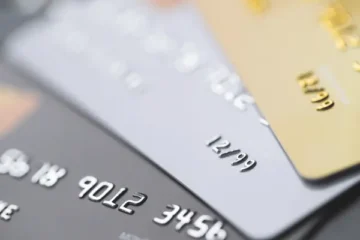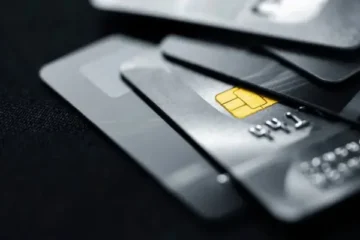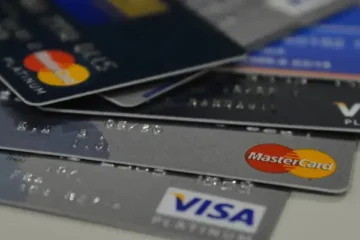Financial Minimalism: Transform Your Finances with Simple Habits
Have you ever imagined having more money in your pocket, fewer debts on your mind, and living with more peace of mind? It sounds too good to be true, but it’s possible with financial minimalism.
Advertisement
This lifestyle is gaining popularity, especially among those who want to put an end to financial stress and start focusing on what really matters.
Advertisement
In this article, I’m going to show you everything about financial minimalism in a simple and straightforward way. Let’s dive in!
What Is Financial Minimalism?
To start, financial minimalism is not about being stingy or living off scraps. It’s about focusing on what’s essential and cutting out the excess. It’s about spending less on things that don’t matter to you and investing more in what truly makes a difference.
Advertisement
Think of it this way: remember that streaming subscription you barely use? Or those clothes you bought but never wore?
Financial minimalism is about identifying these “leaks” in your finances and eliminating them so you can have more money left over and fewer worries.
Why Adopt Financial Minimalism?

Modern life often feels like a never-ending race: bills to pay, debts piling up, and constant temptations to spend on everything you see.
Do you ever feel that weight of guilt when you check your bank statement at the end of the month? That’s where financial minimalism comes in. It’s not just about saving money; it’s about gaining more control over your life and focusing on what truly matters.
When you start simplifying your finances, you’ll realize you don’t need much to be happy. It’s a way to break out of this endless cycle and find balance.
And what do you gain from it? Here are the biggest benefits:
- Less Stress: Fewer bills and expenses mean more peace of mind.
- More Freedom: Take control of your money and invest in what makes your heart race, like travel or that dream that once felt far away.
- Conscious Spending: Say goodbye to impulse purchases. With financial minimalism, you’ll learn to make choices that truly matter.
Fundamental Principles of Financial Minimalism
Financial minimalism isn’t about following a rigid set of rules; it’s about embracing a mindset that helps you simplify and organize your financial life.
It’s like having a compass that always points to what’s essential, guiding you to spend wisely and prioritize what truly matters.
Following these basic principles will help you take the first steps on this journey toward more freedom and less complication. Check out the pillars that sustain financial minimalism:
- Spend Less Than You Earn: This is the golden rule. If what you spend exceeds what you earn, the financial gap will only grow.
- Focus on the Essential: Before making any purchase, ask yourself, “Do I really need this?” If the answer is “no,” let it go.
- Eliminate Superfluous Expenses: Identify where your money is leaking unnecessarily and cut it mercilessly.
- Plan Financial Goals: Having clear objectives gives meaning to your financial choices, whether it’s paying off debts, traveling, or ensuring a secure future.
How to Start with Financial Minimalism
If the idea of simplifying your finances has caught your attention but you’re unsure where to begin, don’t worry! Starting with financial minimalism doesn’t have to be complicated.
The secret is to adopt simple yet consistent changes that will make a big difference in your wallet and your life. Here’s a practical step-by-step guide to help you:
- Analyze Your Expenses: Look at your bank statement and figure out where your money is going. Mark what’s essential (like bills and groceries) and what’s superfluous.
- Cut the Superfluous: Cancel unused subscriptions, avoid unnecessary snacks, and eliminate impulse purchases – get rid of what doesn’t add value.
- Create a Minimalist Budget: Set clear limits for each spending category and stick to the plan.
- Simplify Your Financial Life: Automate bill payments, use apps to track expenses, and keep your finances organized.
Common Mistakes in Financial Minimalism
Diving into the world of financial minimalism may seem straightforward at first glance, but it’s easy to stumble on a few pitfalls. The goal isn’t to be perfect, but to learn from mistakes and adjust your course.
To avoid frustrations, watch out for these common mistakes many people make:
- Confusing Minimalism with Deprivation: It’s not about giving up on life, but about spending consciously.
- Focusing Only on Cutting Costs: Minimalism also involves investing in what matters, like learning or high-quality leisure activities.
- Not Having Goals: Without clear objectives, it’s easy to lose motivation and slip back into old habits.
The Impact of Financial Minimalism on Your Lifestyle
If you’re still wondering whether financial minimalism can truly transform your life, the answer is a resounding “yes.”
This change isn’t just about money – it’s about rethinking your priorities and creating a lighter, more conscious lifestyle that aligns with what truly matters.
Adopting financial minimalism helps you realize that happiness isn’t about accumulating things, but about making the most of what you already have and freeing up space – in your home, your mind, and your life – for what makes sense.
The impact goes far beyond your finances. Here’s how it can transform your daily routine:
- Conscious Consumption: Buying less and buying better reduces waste and helps you value what you already own.
- More Time and Energy: By simplifying your finances and cutting unnecessary expenses, you gain time and focus to invest in what you love.
- Improved Quality of Life: Less debt, more control, and reduced stress lead to a more balanced and happier life.
Financial minimalism isn’t just a behavioral change; it’s an invitation to a more meaningful life with less burden – both on your wallet and your heart.
Practical Tips for Embracing Financial Minimalism
If you’ve understood the concept of financial minimalism and are ready to put it into action, the good news is that getting started is easier than it seems.
Small changes in your daily routine can bring surprising results, both for your wallet and your peace of mind. The secret is to adopt simple and consistent habits that help you spend less, live better, and enjoy more.
To help you on this journey, here are some practical tips you can start applying today:
- Create a Priority List: Write down what truly matters in your life, whether it’s family, travel, or hobbies.
- Avoid Impulse Purchases: Before buying something, wait 24 hours and see if you still think it’s worth it.
- Simplify Your Finances: Use bank accounts and credit cards with lower fees and greater convenience.
- Reevaluate Your Spending Habits: Constantly ask yourself if each expense makes sense or if it’s just a habit.
Financial Minimalism and Investments
After organizing your finances and cutting unnecessary expenses, it’s time to take the next step: making your money work for you.
Financial minimalism prepares you for this because, by eliminating excesses, you free up more money to invest consciously and strategically.
Investing doesn’t have to be complicated. With minimalism as your foundation, you can adopt a simple and efficient approach, focusing on what truly matters. Here’s how to get started:
- Start with the Basics: Treasury Bonds, Certificates of Deposit (CDs), and low-risk funds are great for beginners.
- Invest in What Makes Sense for You: Do you want financial freedom in the future? Do you want to buy a house? Align your investments with your goals.
- Avoid Overcomplication: You don’t need to invest in dozens of things. Choose a few options that you understand and trust.
Financial minimalism isn’t just about spending less; it’s also about using what you save to build a more stable and goal-oriented future.
Financial Minimalism and Sustainability
In addition to benefiting your wallet, financial minimalism also helps the environment. Consuming less means generating less waste and reducing your environmental impact.
- Avoid Waste: Buy only what you will actually use.
- Support Reuse: Opt for recycled or second-hand products whenever possible.
- Value Simplicity: Often, the best choices are the simplest and most sustainable ones.
Financial minimalism isn’t just a trend – it’s a lifestyle that can transform your relationship with money and bring more happiness. Start with small steps, eliminate excesses, and focus on what truly matters.
Remember: every choice you make is an investment in your future. Let’s get started!





